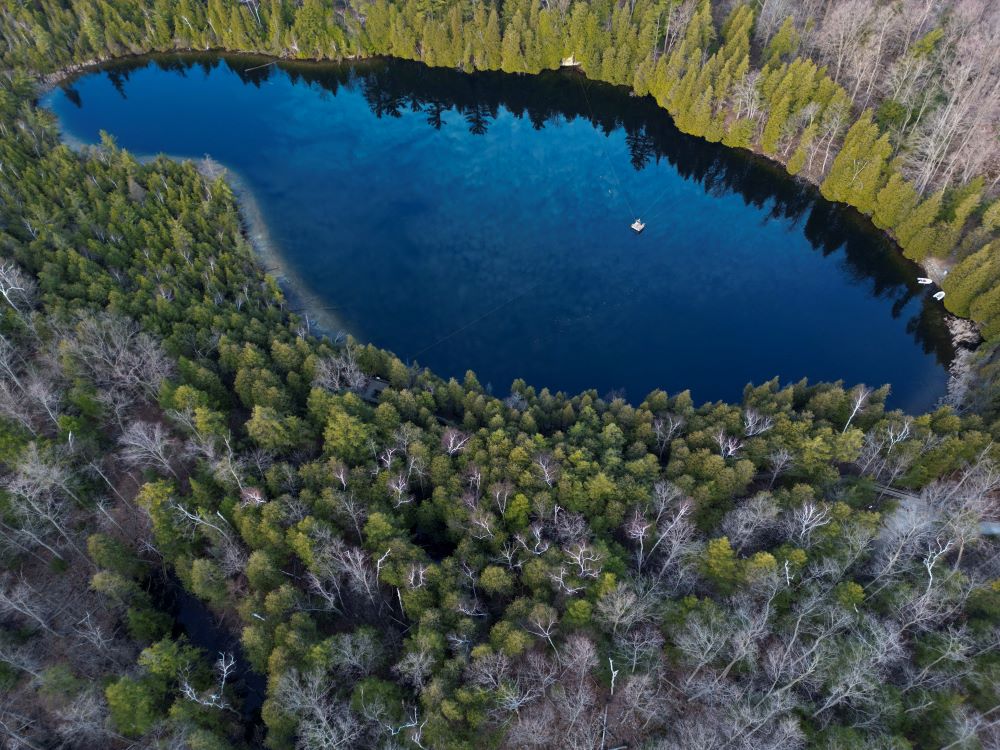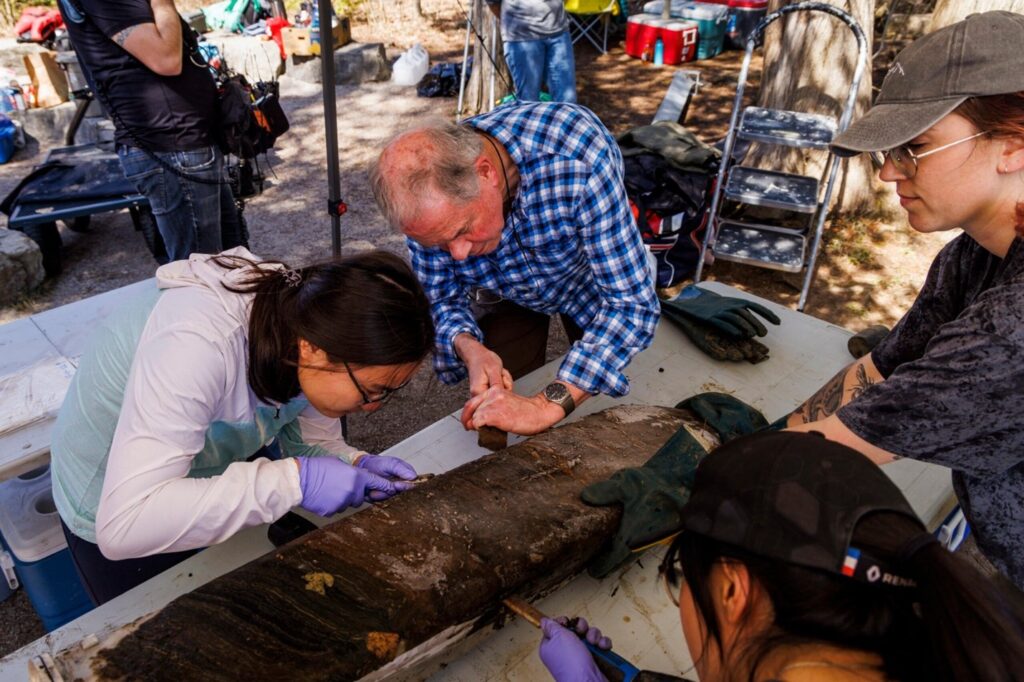The Subcommission on Quaternary Stratigraphy, which is part of the International Union of Geological Sciences, voted on Tuesday (March 5, 2024) against a proposal to declare a new geological epoch called the Anthropocene. The proposal was first made in 2009 and the evaluation process took 15 years. Phil Gibbard, a member of the subcommittee and professor emeritus of quaternary paleoenvironments at the Scott Polar Research Institute at the University of Cambridge (UK), told CNN that the “proposal for a formal Anthropocene was rejected by a 66% vote.”


Figure 1: The Anthropocene, illustration by Stephanie Dalton Cowan
The geological community may be divided whether the human changes rose to the level of an Epoch, some suggesting it was too soon in geological terms for such a declaration. But few scientists doubt the magnitude of human impact on our planet. Kim Cohen, another member of the subcommittee and assistant professor of geosciences at Utrecht University (Netherlands), stated: “Everybody talks about [the Anthropocene] already. In journals, many people use it. But in geology, not so many as all the other sciences.”
The geologists continue to debate the term. Colin Waters, chair of the Anthropocene Working Group and an honorary professor at the School of Geography, Geology & the Environment at the University of Leicester (UK), said to CNN that: “….given the existing evidence, which continues to grow, I would not be surprised if there is a future call for a proposal to be reconsidered”.
Archaeologists have been at the forefront of thinking about the Anthropocene. The geologist may have their own methods to identify the beginning of the Anthropocene (the AWG suggested in 2023 that Crawford Lake in Ontario is a keystone site where the impact of human produced radioactive materials can best be document in its sediments). But the geomorphological markers identified the culmination of a process that started millennia before. It is not enough to know when the Anthropocene may have begun. We must understand how humans became to be such an impactful organism, the Apex predator of earth’s biology and an organism capable altering planet geology.


Figure 2: Crawford Lake, Ontario (Image: Washington Post)


Figure 3: Members of the research team at Crawford Lake Conservation Area remove layers of sediment that have frozen onto a metal hollow tube, filled with dry ice and ethanol, that is dropped into the lake’s muddy floor ((Photo: Courtesy Brock University, Thursday, April 13, 2023)
There are two important reasons for archaeologists to continue and forcefully engage with the Anthropocene as a major intellectual focus for research. First, we must understand all the decisions our ancestors made about, and their impact on our environment – the good, the bad, and the ugly. As the world’s population reaches over 8 billion humans, we are running out of resources, biodiversity, and potable water. Climate change, ocean temperature & acidity change, raising ocean water levels and a range of other processes are threatening the livelihood and lives of billions of humans. Knowing how we got here and understanding the processes and their impact may go a long way towards creating a better, more sustainable future for all.
The second reason is swiftly coming into sharp focus. Governments and private entities are now working hard on establishing permanent colonies on the Moon and onward to Mars. We have an ethical and moral obligation to learn from our actions on Earth and try to minimize our impact on these planetary environments. Colonies on the Moon and Mars are just the first steps for human colonization of the Solar System and beyond. Whether such colonization will happen in our lifetime is unknown. Yet the process of human expansion beyond our home planet is unstoppable and progressing at neck-breaking speed.
We must prepare and build the intellectual, technological, and methodological infrastructure to deal with such potential environmental changes. Archaeologists must play an active role in this endeavor. No matter how, or when, the geologists will accept the Anthropocene as a geological Epoch.
